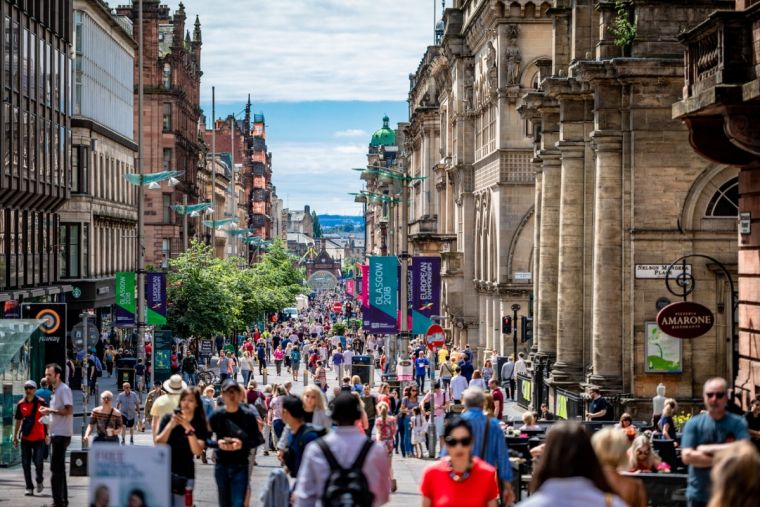Scottish churches welcome re-opening of buildings for individual prayer from 22 June

Churches in Scotland were today given the long awaited approval from the Government to re-open, but only for private prayer.
They were among a raft places given the greenlight to open again by First Minister Nicola Sturgeon on Thursday, with others being shops with street access, factories, outdoor sports venues and outdoor markets.
Churches will be able to re-open initially for private prayer and funerals on 22 June, with social distancing and strict hygiene measures in place. Outdoor weddings "with minimal attendees" will be permitted from 29 June. The resumption of church services is not yet on the cards.
"The nature of this virus and how it spreads means that it may still be some time before large religious gatherings are permitted," Ms Sturgeon said.
"However, I hope that the reopening of places of worship for individual prayer will be welcomed and that it can provide an additional source of comfort for many."
It comes as the country enters phase 2 of the Scottish Government's strategy to emerge from lockdown.
Places of worship in England have already been allowed to open for individual prayer since last weekend after the UK Government came under pressure from Christians and Church leaders, including Cardinal Vincent Nichols.
Thursday's announcement from the First Minister was welcomed by Scottish Church leaders in a joint statement.
"The closure of our places of worship over the past twelve weeks due to the impact of Covid 19 has been unprecedented," reads the letter, which was signed by nine Church leaders from across the denominations.
"The immediate consequence of this was that we were no longer able to gather for worship in the manner to which we were accustomed.
"The challenges that we faced in the light of this were, once more, unprecedented. However, we have learnt much during this time, especially with regard to the centrality of the relationships that lie at the heart of what it is to be members of the Church of our Lord Jesus Christ.
"In normal times, the relational dimension of what it is to be members of the body of Christ is given expression in our physically gathering for worship. In these recent times, we have been unable to do so. This has resulted in a profound longing for spiritual communion and a desire to see our physical gathering renewed and, at the same time, a realisation of the creative opportunities offered in terms of enabling relationships through technology.
"This deepening of spiritual longing and the creative possibilities inherent in technology are part of the legacy of the past weeks.
"Our desire is to serve the people of Scotland through our witness to the love of God made known through Jesus Christ.
"In the re-opening of places of worship for individual prayer, we see a sign of the renewal of our shared life and of our witness to that enduring love, albeit that we do not expect that every church will choose, or be able, to reopen its buildings at this time."
Rev Dr George Whyte, Principal Clerk of the Church of Scotland, said guidance was being prepared to help ministers and congregations re-open their churches.
He suggested that not all churches will be able to re-open next week.
"As we continue to live with the threat of coronavirus, ministers and congregations must consider carefully whether or not they should return to the church building in the early phases depending on their own circumstances and the nature of their church," he said.
"Parishioners and ministers in high risk groups may be at particular risk from infection and many will prefer to continue with online worship options at this stage. Others will know that with physical distancing there simply will not be room for all those who might wish to attend when Sunday worship becomes a possibility further down the road.
"However, we recognise that for many the buildings themselves are an important sacred space and the opportunity to return to their place of worship, even on a limited basis, will bring spiritual and mental-health benefits."











